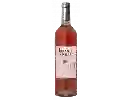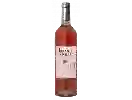
Château Grand EscalionCostières de Nîmes Rouge
In the mouth this red wine is a powerful with a nice balance between acidity and tannins.
This wine generally goes well with beef, game (deer, venison) or lamb.
Taste structure of the Costières de Nîmes Rouge from the Château Grand Escalion
Light | Bold | |
Smooth | Tannic | |
Dry | Sweet | |
Soft | Acidic |
In the mouth the Costières de Nîmes Rouge of Château Grand Escalion in the region of Rhone Valley is a powerful with a nice balance between acidity and tannins.
Wine flavors and olphactive analysis
Food and wine pairings with Costières de Nîmes Rouge
Pairings that work perfectly with Costières de Nîmes Rouge
Original food and wine pairings with Costières de Nîmes Rouge
The Costières de Nîmes Rouge of Château Grand Escalion matches generally quite well with dishes of beef, lamb or game (deer, venison) such as recipes of express veal stew in a pressure cooker, chicken with merguez and tomatoes or valencian paella - family recipe.
Details and technical informations about Château Grand Escalion's Costières de Nîmes Rouge.
Discover the grape variety: Mourvèdre
Mourvèdre noir is a grape variety originating from Spain. It produces a variety of grape specially used for wine making. It is rare to find this grape to eat on our tables. This variety of grape is characterized by medium to large bunches, and grapes of medium size. Mourvèdre noir can be found in several vineyards: South-West, Cognac, Bordeaux, Provence & Corsica, Rhône valley, Languedoc & Roussillon, Loire valley, Savoie & Bugey, Beaujolais.
Last vintages of this wine
The best vintages of Costières de Nîmes Rouge from Château Grand Escalion are 2019, 2017, 2015, 2016 and 2012.
Informations about the Château Grand Escalion
The Château Grand Escalion is one of of the world's greatest estates. It offers 9 wines for sale in the of Costières-de-Nîmes to come and discover on site or to buy online.
The wine region of Costières-de-Nîmes
The wine region of Costières-de-Nîmes is located in the region of Rhône méridional of Rhone Valley of France. Wineries and vineyards like the Domaine Scamandre or the Château d'Or et de Gueules produce mainly wines red, pink and white. The most planted grape varieties in the region of Costières-de-Nîmes are Mourvèdre, Roussanne and Viognier, they are then used in wines in blends or as a single variety. On the nose of Costières-de-Nîmes often reveals types of flavors of non oak, thyme or raisin and sometimes also flavors of clove, cocoa or coffee.
The wine region of Rhone Valley
The Rhone Valley is a key wine-producing region in Southeastern France. It follows the North-south course of the Rhône for nearly 240 km, from Lyon to the Rhône delta (Bouches-du-Rhône), near the Mediterranean coast. The Length of the valley means that Rhône wines are the product of a wide variety of soil types and mesoclimates. The viticultural areas of the region cover such a distance that there is a widely accepted division between its northern and southern parts.
The word of the wine: Barrel
A wooden barrel made of oak that varies in size depending on the region and is used to age wines. Some white wines are vinified and aged in barrels.













